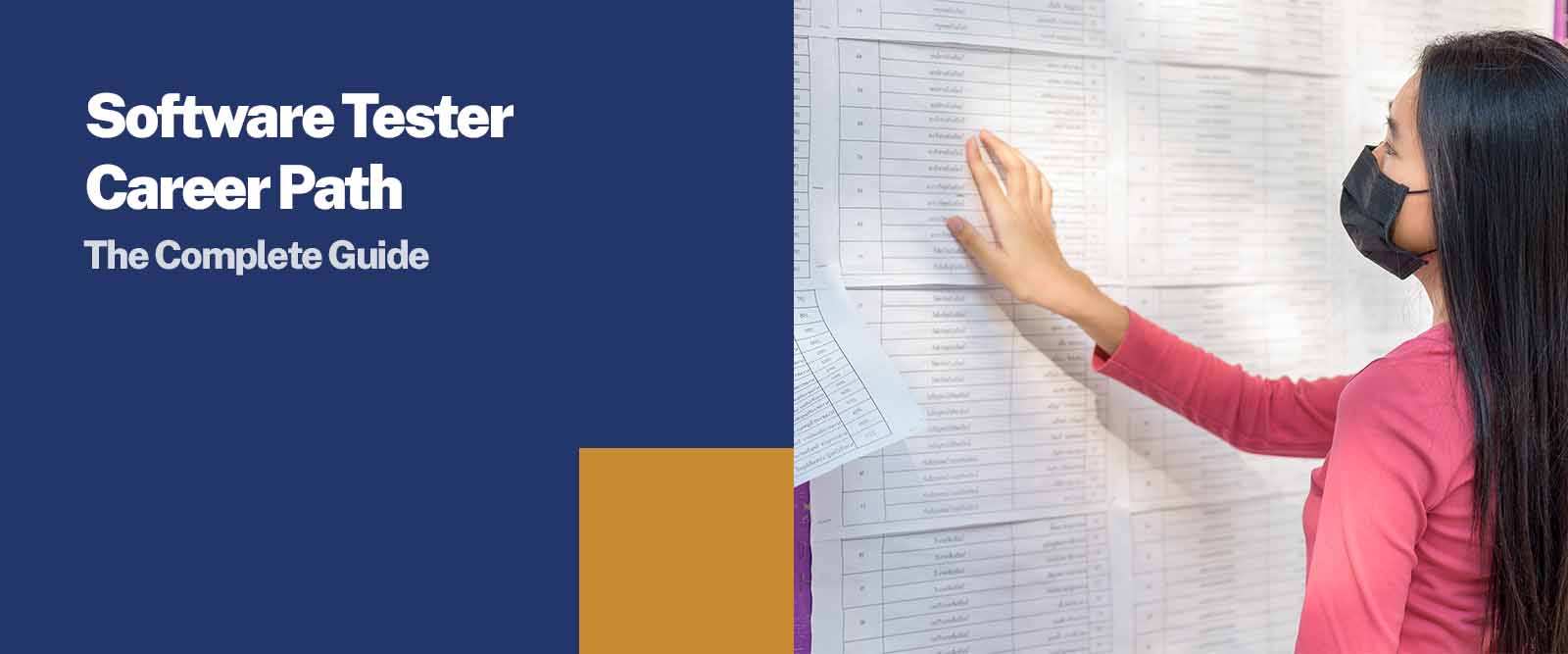5800 students unlocked their dream jobs with UG/PG programs in top colleges. Apply Now!
Digital transformation is a big driver of investment in the software business. The need for software concentrating on digitalisation, data analytics, and process automation has risen dramatically in recent years.
According to research, the global software industry rebounded, from a minor decline caused by the COVID-19 pandemic in 2020, to reach $565 billion in 2021. Such numbers demonstrate the huge demand for a workforce in the sector.
This blog will examine the scope of a software testing career, the skills necessary, and professional advancement.
Software Testing: What Exactly Is It?
Software testing is the process of validating and analysing a software program's functionality and determining if the generated software meets the defined requirements of the expected outcomes. It detects and corrects faults, problems, and mistakes, resulting in error-free software.
Consequently, software testing occupations may be regarded as the forerunners of creating a product bug-free, matching functionality to expected outcomes, and assuring efficiency through verification and validation methods.
The role of a Software Tester has evolved dramatically into many degrees, kinds, and specialties, and these different sorts of testing have raised the inherent worth of a software tester. Aside from being a repetitive test case executor, numerous job choices have emerged in the testing industry.
To thrive in the software testing sector, particularly in technical and non-technical abilities, one needs a fundamental understanding of testing ideas. Also, testers need a minimum degree of knowledge in computer science or application.
Skills Required for Software Testing
The required technical and non-technical software testing skill sets are listed below.
Technical Skills
Whether you're an aspiring developer or a tester, the list of technical abilities below will help you define your objectives:
- Programming Languages
Understanding one or more programming languages is advantageous in software testing. Programming languages such as Java, Python, Ruby, and others are widely available and exchanged among testers.
- Front-End Skills
Well, front-end languages such as JavaScript, CSS, and HTML help software testers grasp the structure of an online application. HTML is the foundation of every website, while CSS makes it appealing to end users. When producing a complete bug report, it assists testers in dealing with difficulties and investigating them.
- Practical Experience with Test Management Tools
Well, test management is an essential component of software testing. The entire software testing procedure will fail if the correct tools and procedures are not used. It allows testers to manage testing artefacts such as test cases, issue reports, and so on. As a result, fundamental knowledge and practical expertise with such technologies are essential.
- Automation and Manual Testing
It is critical for software testers to be knowledgeable about both automated and manual testing. Manual testing involves validating software programmes using various test settings and scenarios. On the other hand, automation testing is in charge of testing utilising automated technologies that minimise execution time while increasing quality.
- Knowledge of Bug Tracking Tool
Well, bug-tracking tools are crucial to the life cycle because they handle faults effectively and monitor them consistently. The whole product team, including testers, developers, and managers, should know defect tracking and its use.
Non-Technical Skills
Non-technical abilities are critical for the tester to grow successfully. The following abilities are required to become an effective software quality tester:
- Organisational and Time Management Skills
Because testers operate in a fast-paced setting, they must be adept at time management, particularly during code release. The software tester must properly manage the workload while maintaining high productivity.
- Analytical Skills
A skilled software tester should have acute analytical skills that would assist them in breaking apart the complicated software system into smaller pieces. It would allow them to comprehend the complexity better and design better test cases.
- Attitude
A competent software tester must have a positive attitude to enhance technical and other abilities. A detail-oriented mindset might lead the tester to assume responsibility for completing a task without much supervision.
- Passion
You do not just choose a software tester career path just for the sake of it. A software tester must have a strong enthusiasm for the subject. Complete engagement in the task necessitates enthusiasm and devotion, which are crucial skills for every software tester.
- Written and Verbal Communication Skills
To be a successful tester in the field, you must communicate well verbally and in writing. Test cases, test strategies, defect reports, test conditions, and so on should be written so everyone can read and comprehend them. While dealing with a fault or a follow-up, the software tester would require constant collaboration with a developer, which would demand solid communication skills.
(Here's a comprehensive guide to becoming a software engineer in India. Read on to learn more)
Software Testing Roadmap
Here is a complete software testing roadmap for those who wish to follow a software tester career path:
- You'll most likely require a bachelor's degree in engineering linked to the sector in which you wish to work. This is the foremost software testing eligibility criteria you need to meet.
- To become a software test engineer, you must determine if the job will suit your traits, skills, desired lifestyle (schedule, work-life balance, and so on), and ambitions.
- Individuals with a natural talent in mathematics and physics and an interest in computers and electronics are usually well suited for this employment.
- To work in this industry, you must be comfortable discussing your thoughts with other experts, such as managers and design engineers.
- Following that, you'll need to understand the fundamental concepts of software testing, like detecting the presence of bugs, determining risk without exhaustive testing, defect clustering, early testing, and ensuring that a product meets business needs without error.
You may better decide if you wish to pursue a software tester career after considering all the factors.
(BE vs B. Tech: Here’s all you need to know)
Software Testing Career Path: Growth and Salary
A software tester's career path is not fixed in stone. Several techniques for specialising and expanding via software testing branches and into other business domains exist. There are many alternative paths that you might pursue as a software tester.
The following are the typical stages of career development in this field:
- Software Tester
- QA Analyst
- QA Team Coordinator
- Software Test Engineer
- Test Manager
- Senior Test Manager
The salary of a software tester varies by company. The typical wage for a software tester is as follows:
|
Position |
Average Salary (in ₹)* |
|
Software Tester |
₹21,32,750 per annum |
|
QA Analyst |
₹18,85,800 per annum |
|
Senior Quality Assurance Engineer |
₹29,63,400 per annum |
|
Test Manager |
₹80,82,000 per annum |
|
Software Team Leader |
₹33,67,500 per annum |
Ending Note
With the gradual incline towards automation, companies are training their software testers and enhancing their skills to operate different platforms. Now, if you are pursuing your B.Tech degree or have obtained your B.Tech admission, it is crucial you learn some in-demand skills, and the easiest way to do so is through Sunstone. Sunstone has designed 100+ hours of industry-approved training modules to enhance the skill set of fresh graduates.
Students who register with colleges offering Sunstone’s benefits can get access to advanced certifications, soft skill development programmes, and 100% placement support. We have a network of 1200 recruiters that hired more than 5000 students from Sunstone’s pool of talent in the last few years.
HELP
Take the first step towards your dream job.
ABOUT THE AUTHOR


